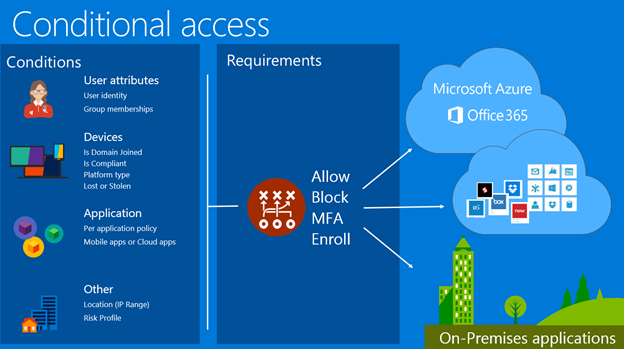In today's interconnected world, where data breaches and security threats have become increasingly common, organizations must adopt robust measures to protect their sensitive information. Azure Conditional Access Policies offer a powerful toolset for enhancing data security and ensuring that only authorized users can access critical resources. By applying context-based access controls, these policies enable organizations to mitigate risks, safeguard sensitive data, and maintain compliance with regulatory requirements. This article explores the importance of Azure Conditional Access Policies in protecting organizational data in the modern era.
Understanding Azure Conditional Access Policies
Azure Conditional Access Policies are a crucial component of Microsoft's cloud-based identity and access management (IAM) solution, Azure Active Directory (Azure AD). These policies allow organizations to define specific conditions that must be met before users are granted access to Azure AD-connected resources, such as cloud applications, services, and data. These conditions can include factors like user location, device health, application sensitivity, network location, and multifactor authentication.
Enhancing Data Security
One of the primary reasons for implementing Azure Conditional Access Policies is to enhance data security. With the increasing number of cyber threats, traditional security measures such as usernames and passwords are no longer sufficient. By implementing conditional access policies, organizations can go beyond these traditional measures and ensure that access to sensitive data is granted based on additional contextual factors. For example, they can require users to authenticate using multiple factors such as a password and a biometric scan, or only allow access from trusted devices and locations.
By enforcing these policies, organizations can significantly reduce the risk of unauthorized access, data leaks, and potential breaches. They can also mitigate the impact of stolen or compromised credentials since conditional access policies ensure that even if someone possesses valid login credentials, they will still need to meet specific conditions to gain access to critical resources.
Compliance with Regulatory Requirements
Compliance with data protection and privacy regulations is of paramount importance for organizations across various industries. Azure Conditional Access Policies enable organizations to enforce compliance measures by ensuring that access controls align with regulatory requirements. These policies can be configured to enforce multifactor authentication, restrict access from certain locations or devices, and require additional security measures for sensitive applications or data. These measures help organizations meet regulatory obligations and protect sensitive customer data from unauthorized access or breaches.
Adaptive Security and User Experience
Azure Conditional Access Policies provide organizations with the ability to create adaptive security measures. The policies can adapt based on real-time risk assessments, user behavior analytics, and threat intelligence data. By continuously monitoring access attempts and analyzing contextual information, these policies can dynamically adjust access controls and apply additional security measures when deemed necessary. For example, if a user attempts to access a critical application from an unfamiliar device or an unusual location, the policy can trigger additional authentication steps or deny access altogether.
While enhancing security, Azure Conditional Access Policies also strive to provide a seamless user experience. By tailoring access controls based on contextual information, organizations can strike a balance between security and usability. This ensures that legitimate users can access resources with minimal friction, while potential threats are effectively mitigated.
Conclusion
In an era where data breaches and cyber threats pose significant risks to organizations, Azure Conditional Access Policies have emerged as a vital tool for protecting sensitive data and ensuring regulatory compliance. By implementing these policies, organizations can enforce context-based access controls, reduce the risk of unauthorized access, and mitigate the impact of stolen or compromised credentials. Moreover, the adaptive nature of these policies allows for real-time risk assessment and dynamic adjustments to access controls, providing a seamless user experience without compromising security. As organizations increasingly rely on cloud-based resources, embracing Azure Conditional Access Policies becomes a crucial step in fortifying their data security defenses.







